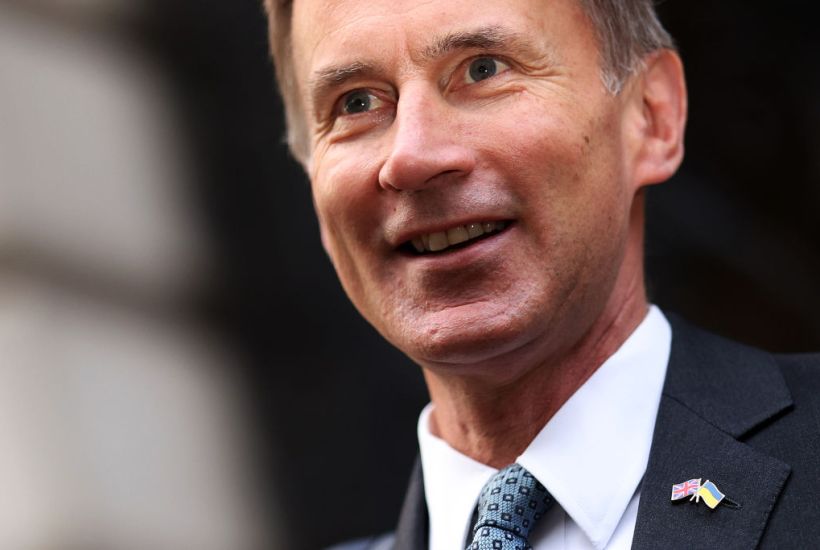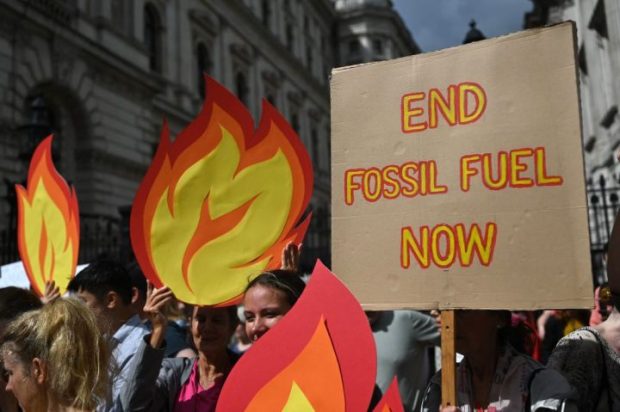The OECD has marked Britain down as the only G7 country (and the only major country bar Russia) expected to suffer a shrinking economy next year. But how accurate are its predictions? A year ago, it predicted that inflation in the UK would peak at 4.9 per cent in the first half of this year before falling back to 2 per cent by the end of next year. The economy was going to grow by 4.7 per cent this year followed by a further 2.1 per cent in 2023. The government would bite off any hand that offered that now.
It can be excused for failing to predict the Russian invasion of Ukraine. But this is hardly the first time economic forecasting by the OECD and everyone else has proved somewhat wide of the mark. For what it’s worth, here are its forecasts for the UK next year, published this morning: the economy will shrink by 0.4 per cent over the course of the year – the worst performance of all G7 countries – before recovering to grow by 0.2 per cent in 2024.
Inflation, it says, will peak ‘at around 10 per cent in late 2022’. That sentence was presumably written before last week’s news (acknowledged later in the OECD report) that CPI stood at 11.1 per cent last month. Unemployment, it says, will reach 5 per cent by the end of 2024.
Most eye-catching is the OECD’s suggestion that Europe’s energy crisis might be even more acute next winter than it is now
More interesting is what the OECD has to say about the Energy Price Guarantee, which it expects to end up costing £25 billion and which it criticises for being untargeted. ‘Since energy prices are likely to remain high and volatile for some time,’ it argues, ‘untargeted measures to keep prices down will become increasingly unaffordable and could discourage energy savings.’ On this it is surely right. The guarantee, a legacy of Liz Truss’s short premiership, is entirely indiscriminate in that it caps gas and electricity prices for every household, regardless of means. The more energy you use, the bigger your handout from the taxpayer. As the OECD points out, it acts as a disincentive for households to cut energy use – making blackouts more likely this winter.
But most eye-catching is the OECD’s suggestion that Europe’s energy crisis might be even more acute next winter than it is now, ‘as replenishing gas reserves might prove more difficult next year’. True, in early summer, Europe was still receiving some gas from Russia – a supply that will presumably not be available next year. On the flipside, Europe this year lacked the facilities to receive liquified natural gas (LNG) from the US and Qatar, which was a large contributing factor to the huge spike in wholesale gas prices in July and August as the continent desperately stocked up for the winter. This is rapidly being put right. Last week, Germany completed its first floating LNG terminal at Wilhelmshaven on the North Sea. Another such facility at Brunsbüttel will be ready by the end of the year with a further six to follow by the end of next year, with the capacity to import a third of Germany’s annual gas consumption. The Netherlands, too, will complete a floating gas terminal over the next few weeks – and just a few months after the project was conceived. Given such rapid construction, it is hard to see why Europe should be suffering a bigger gas shock next year than it has this year.
The OECD’s predictions rest on its downbeat forecast for energy supplies. So it should come as no surprise if, in contrast to last year, reality outperforms expectations.
The post Will the UK’s economy shrink next year? appeared first on The Spectator.
Got something to add? Join the discussion and comment below.
Get 10 issues for just $10
Subscribe to The Spectator Australia today for the next 10 magazine issues, plus full online access, for just $10.





















Comments
Don't miss out
Join the conversation with other Spectator Australia readers. Subscribe to leave a comment.
SUBSCRIBEAlready a subscriber? Log in